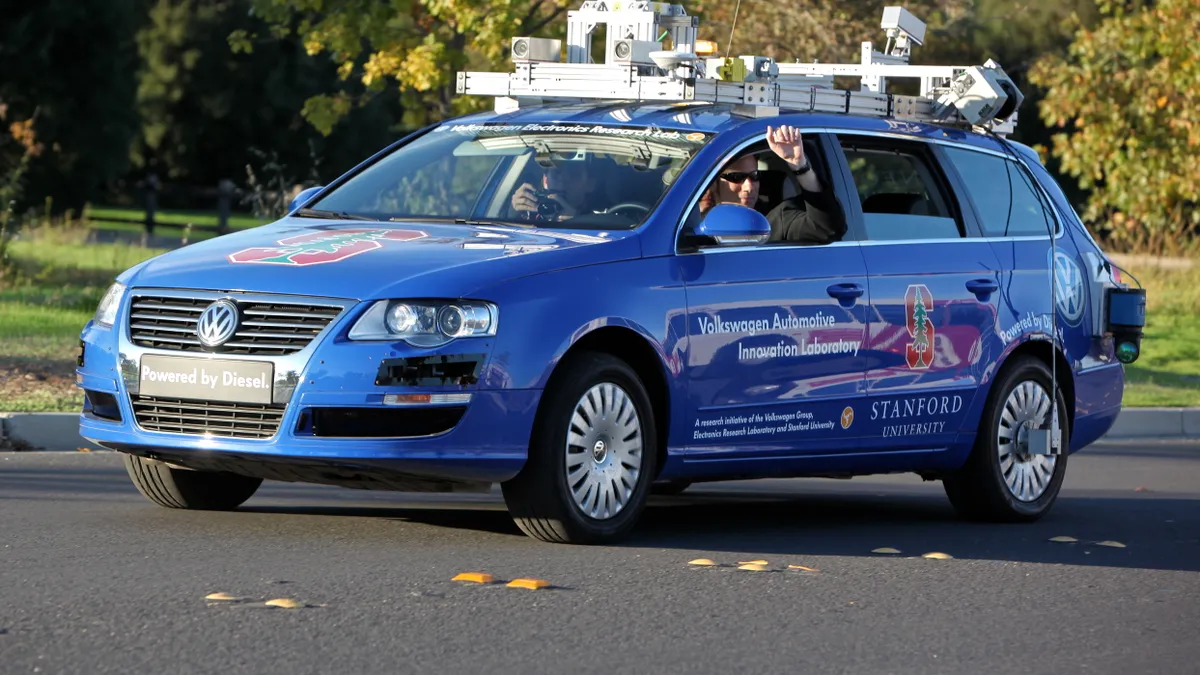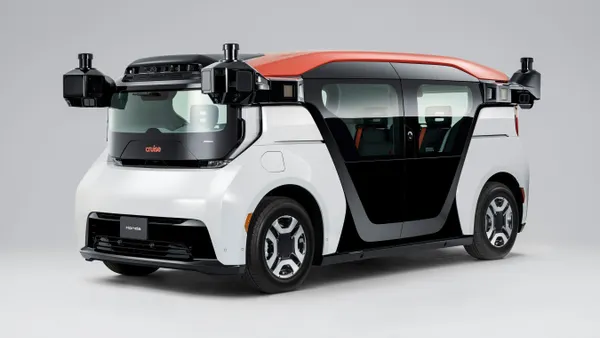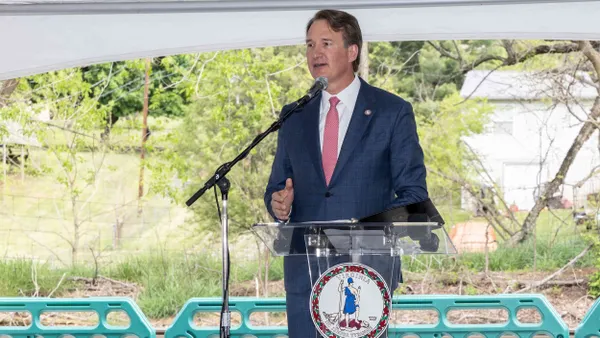Dive Brief:
- Consumer acceptance of autonomous technology has spiked in the last year, according to the 2018 Deloitte Global Automotive Consumer Study. Less than half (47%) of U.S. consumers in the 2018 study feel that autonomous vehicles (AVs) will not be safe — a decrease from 74% in 2017 — and the trend is consistent for countries around the globe.
- The study outlined other factors of consumer trust in AVs, including the need for federal regulation, a proven safety track record and a trusted car brand or manufacturer. In a statement, Deloitte Vice Chairman Craig Giffi noted the "auto industry battle between brands for consumers' trust is on in a new and heightened way."
- The study also highlighted consumers' powertrain preferences. Most U.S. consumers (80%) still favor a gasoline- or diesel-powered engine — up from 76% in 2017 — indicating that car manufacturers have more work to do to increase electric vehicle (EV) demand.
Dive Insight:
The topic of autonomous technology overtook the smart city industry in 2017, as an influx of car manufacturers and ride services joined the race to driverless. Ford, GM, Lyft, Nissan and others made headlines with announcements of consumer-focused AV developments and offerings, putting the pressure on auto industry competitors to pick up the pace — or get left behind.
The increase in consumer confidence around AVs can likely be attributed to the trend's increasing normality. The concept of a driverless vehicle is no longer considered "futuristic." Consumers have also watched cities transform to prepare for the AV revolution. Bloomberg Philanthropies' Global Atlas of AV in Cities shows dozens of cities that are hosting AV tests or preparing for change with long-range surveys and plans. Some cities including Denver and Las Vegas have even tested driverless public transit options. As consumers closely watch their surrounding environment prepare for an autonomous future, trust in the system will likely continue to increase.
The study's findings on U.S. consumers' powertrain preferences, however, should spark concern for city leaders. As local governments increase efforts to combat climate change, fossil-fueled cars have become a clear target. California is currently considering requiring all new cars registered in the state after Jan. 1, 2040 to be zero emissions, in an effort to drastically cut greenhouse gas (GHG) emissions. If the effort is successful, other states may follow suit.
Consumers, however, have expressed concerns with the costs associated with EVs, "leaving automakers with some difficult capital allocation and business model decisions if they expect to make any money at all," says Giffi. Both automakers and local government will need to work on more seamless EV adoption, increased incentives for EV drivers and improved EV infrastructure in order to grow the market. And, once AVs and other alternative driving technologies become tangible options for consumers, these concerns around price, incentives and infrastructure will likely resurface.












